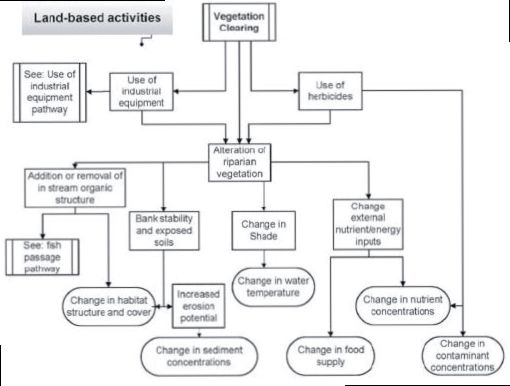The following reproduces in note form a recent presentation to agricultural businesses in Regina, Sk and Langley, BC by Anthony Crossman of Miller Thomson LLP.
Some Cases That May Interest You...
- Prince Albert, SK area cattle rancher fined for failing to obey inspector's direction to stop manure going into a stream and not finding alternative water for his cattle
- Two mushroom growing companies in Abbotsford, BC fined $90,000 for harming fish habitat
- Composting operation fined for disharging material to water and harming fish habitat
- Town of Ponoka, AB convicted of discharging wastewater that killed fish (2011)
- Hatchet Lake Denesuline First Nation (La Ronge, SK) fined for diesel spill into a river
Some Possible Scenarios
- Bridges – installation, maintenance
- Grazing of livestock near water
- Clearing of vegetation near water
- Spills into water or near water
- Drainage, flood control, water management
- Waste water management
- Manure management/ Composting
- Vehicles near water or crossing streams
An Example: Vegetation Clearing*

Recent Changes to the Fisheries Act What do I need to know...
- Significant increase in Penalties
- New duties to report
- Additional powers to enforcement officers
- New offence – failing to comply with Authorization condition
- Opportunity to amend/ cancel Authorizations
What Fish Are Now Protected?
35: "No person shall carry on any work, undertaking or activity that results in serious harm to fish that are part of a commercial, recreational or Aboriginal fishery, or to fish that support such a fishery"
What Actions Are Covered?
Focus on "serious harm"
35: "No person shall carry on any work, undertaking or activity that results in serious harm to fish that are part of a commercial, recreational or Aboriginal fishery, or to fish that support such a fishery"
The New "Serious Harm" Regime
"Serious harm" means:
"...serious harm to fish is the death of fish or any permanent alteration to, or destruction of, fish habitat"
Administrative Guidelines
- Fisheries Protection Policy Statement
- Fisheries Protection Program Operational Approach
- Guidance for the Application of the Transitional Provisions for Ministerial Authorizations
- Applicant's Guide to Submitting an Application for Authorization under Paragraph 35(2)(b) of the Fisheries Act http://www.dfo-mpo.gc.ca/pnw-ppe/changes-changements/index-eng.html
Subsection 36(3): Deposit of Deleterious Substances
- General prohibition unchanged – protection not limited to CRA fisheries
Reporting
- New reporting obligation: duty to report occurrence that results in serious harm to fish (ss.38(1) – (10)) (This is in addition to the existing duty to report a deposit of deleterious substances.)
Inspector's Directions
- Increased power to issue directions
- Previously inspectors had power to issue directions to take correcting measures
- Amendments provide:
- That both inspectors and fisheries officers have the power to issue directions
- Situations where directions may be issued are expanded to include where a HADD has occurred or where there is serious danger of an occurrence
Enforcement / Penalties
- Fines for sections 35 and 36(3) related offences are increased for consistency with fines under the Environmental Enforcement Act
- Minimum and maximum penalties now
- Penalties increased
- Penalties vary depending on the accused:
- Individuals
- Small revenue corporations
- Other corporations
- 1st offence (indictment):$500k (min) - $6m (max)
- 2nd offence: $1m (min) - $12m (max)
- New offence for failing to comply with s35(2) condition – in force
Transitional Provisions: Existing Authorizations
- Existing Authorizations are deemed to be an authorization under the new regime
Access the complete text at: http://www.millerthomson.com/assets/files/article_attachments2/AJC_2014-03_FisheriesAct.pdf
Originally published in the April 2014 issue of CERCN.
The content of this article is intended to provide a general guide to the subject matter. Specialist advice should be sought about your specific circumstances.

